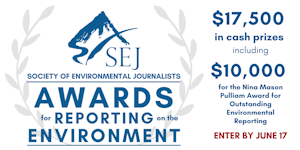"The Wound That Won’t Heal: Idaho’s Phosphate Problem"
"An elemental phosphorus plant owned by the FMC Corp., on the Shoshone-Bannock homelands in Idaho, has been abandoned for more than a decade. But its legacy of pollution remains -- and it’s jeopardizing economic progress, public and environmental health on the reservation and in surrounding communities."














 Advertisement
Advertisement 



